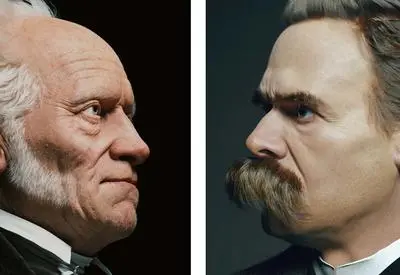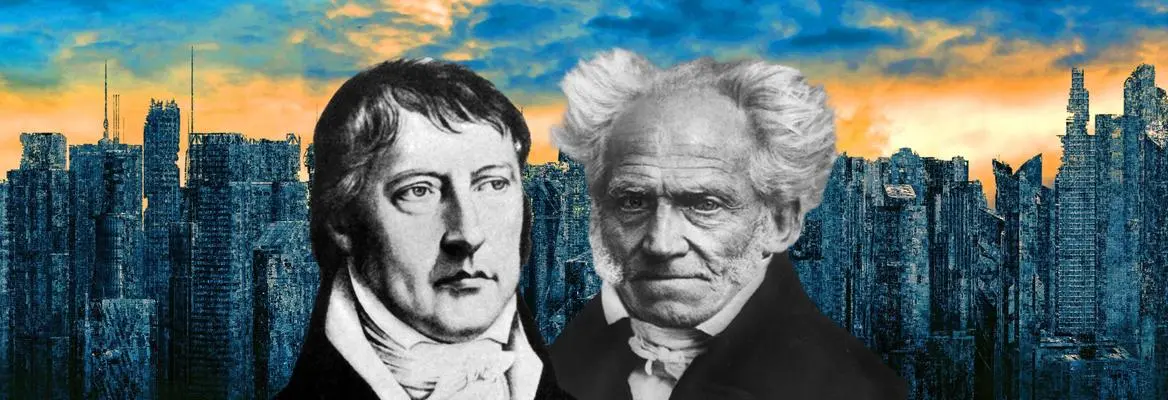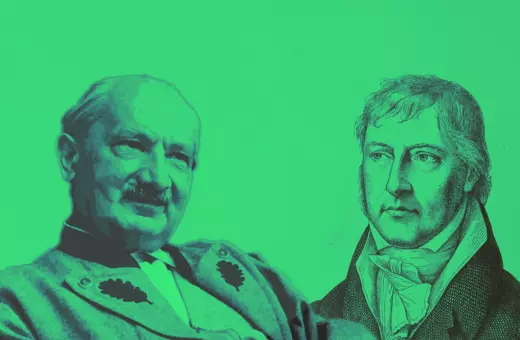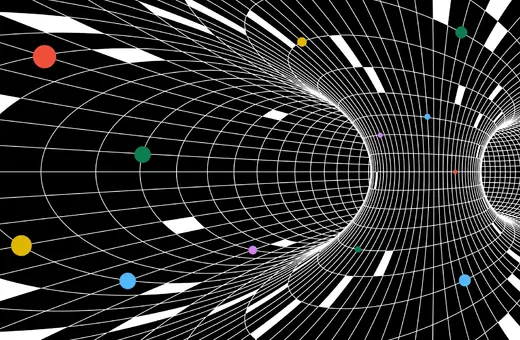Have we been making progress over history? Or is the world made of a fundamental essence that never changes? What is the meaning of time? And the timeless? Schopenhauer and Hegel famously did not get along. But their feud was philosophical, as well as personal, writes Joshua Dienstag.
In the summer of 1820, Arthur Schopenhauer, aged 32, arrived at the University of Berlin to give a lecture course with the grandiose title of ‘Universal Philosophy’. Incredibly, he asked the registrar to schedule his lectures at the same hour as those of G.W.F. Hegel. Hegel held the university’s chair in philosophy and, at that point, was probably the most famous philosopher in the German-speaking world.
 SUGGESTED READING
Schopenhauer vs Nietzsche: The meaning of suffering
By Joshua Foa Dienstag
SUGGESTED READING
Schopenhauer vs Nietzsche: The meaning of suffering
By Joshua Foa Dienstag
Hundreds of students attended Hegel’s lectures. Five registered for Schopenhauer’s. In the following semester, Schopenhauer attracted zero students so his lectures were cancelled. That was the end of his university career.
Hegel, the elder by eighteen years, only met Schopenhauer once and took no notice of the younger man in his writings. Schopenhauer, by contrast, raged at Hegel for years.
After Hegel’s death in 1831, his reputation began to decline and a strange reversal began. Over the following decades, it was the obscure lecturer who became the more famous philosopher. His later works sold thousands of copies and went through multiple printings. For many, Schopenhauer’s pessimism set the philosophical agenda in the second half of the nineteenth-century and beyond, while Hegel’s Enlightenment optimism became the object of ridicule. What had happened?
Schopenhauer had wanted his lectures to offer a clear alternative to Hegel and he was not wrong that the philosophical perspectives of the two men were radically opposed to one another. Indeed, their disagreements were metaphysical. That is, they disagreed about the very nature of the world and what we could know about it.
Both men began as followers of Immanuel Kant but they took his conclusions in entirely different directions. Kant started from the claim that we could never learn the truth about the world just from the information of our senses. Our sense impressions are just noise without a mind to organize them. More specifically, scientific knowledge required mental categories like space, time and causality. Since we all share these categories, we could also share and verify each other’s observations. Science and ‘Enlightenment’ were thus social products.
Hegel took these ideas to have established the validity of modern science, including the ‘science’ of history, which found patterns in the world and established scientific laws from the collective observations of many. Hegel built on Kant’s theory of history, which was rudimentary, and made it into the central category of his philosophy. Human culture and ideas developed over time, he thought, not just in individuals or groups, but in the species as a whole, following a predictable pattern. “The unfolding of the truth,” he wrote, was “revealed in world-history.”
___
Truth wasn’t found in history at all but in what was outside it
___





















Join the conversation